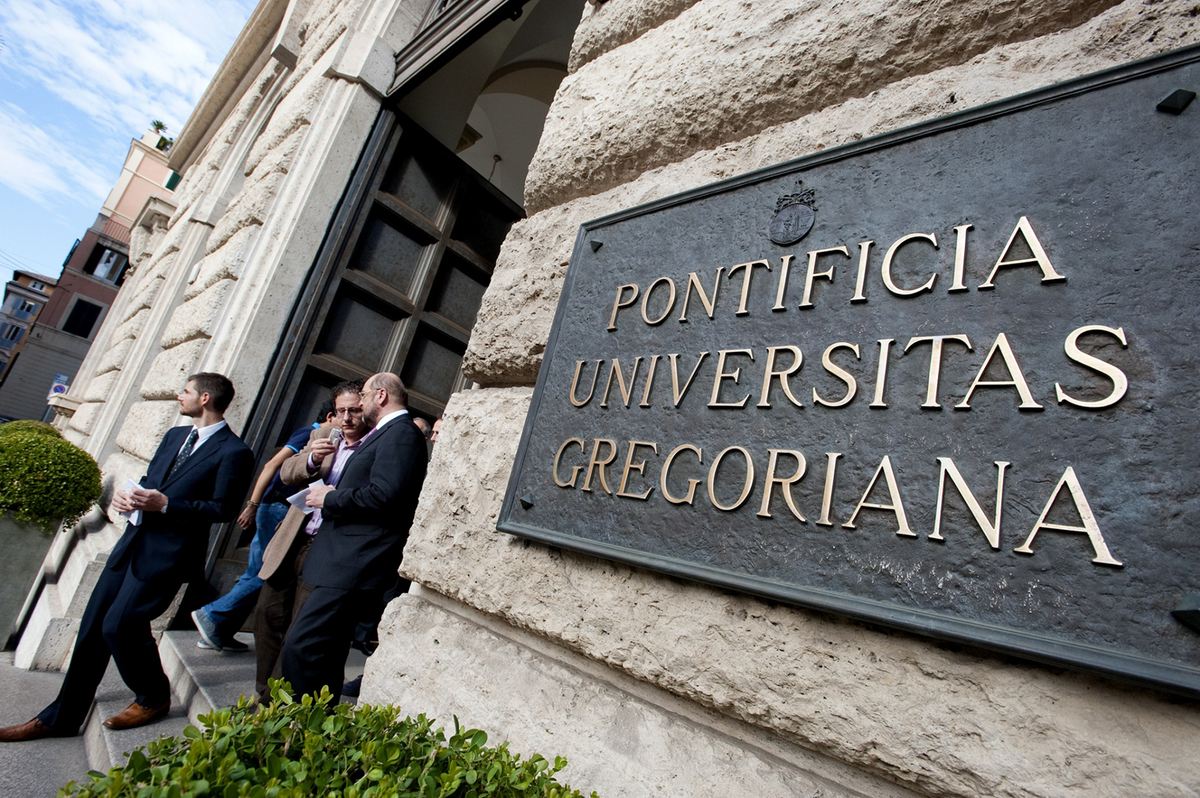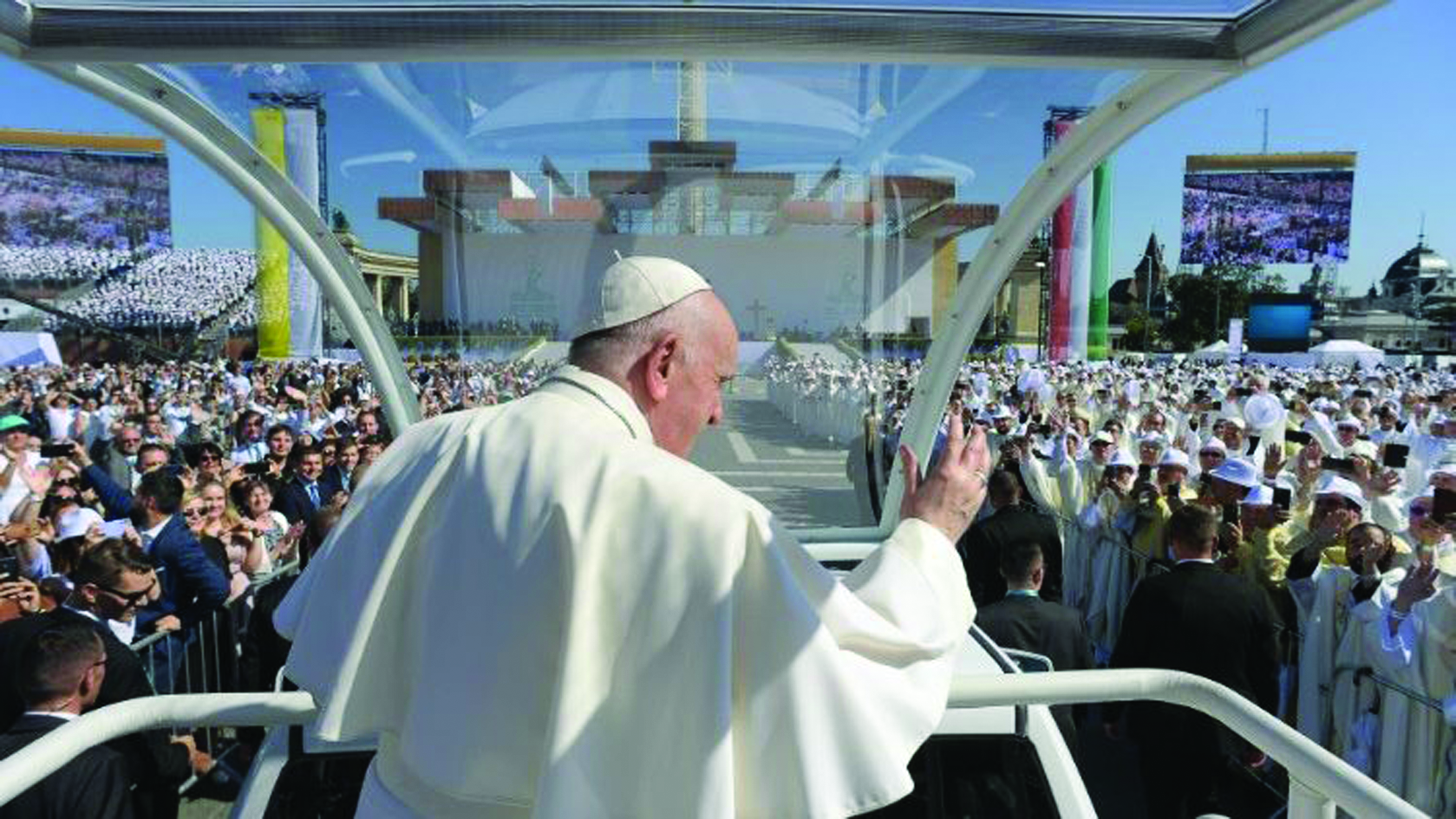On May 25, a group of about 50 cardinals, bishops and theologians invited by the German, Swiss and French bishops’ conferences met behind closed doors at the Gregorian University. One of a handful of reporters present said the discussion seemed “revolutionary, uttered by clergymen”
The German, Swiss and French presidents of the Catholic Bishops’ Conferences in their respective countries sponsored a closed one-day meeting in Rome May 25 on the topic of marriage and sexuality, and especially the acceptance of stable same-sex unions by the Church.
About 50 clergy and academia participants and one journalist attended the invitation-only gathering hosted by German Cardinal Reinhard Marx, Swiss Bishop Markus Buchel and French Archbishop Georges Pontier, prelates all recognized for their vocal support of “pastoral innovations” with regard to Church moral teaching in matters of sexuality.
Participants who later commented on the meeting said there was discussion of a new “theology of love,” supplanting St. John Paul’s “theology of the body.” Critics of the concept point out that replacing the concrete physical reality of the human body with an abstract interpretation of “love” based substantially on emotion (and, as one Swiss priest stressed, “the importance of the human sex drive”) presents a faulty understanding of human nature and the natural law and paves the way for the total separation of sex from procreation.
Father Eberhard Schokenhoff, a German moral theologian, was one of the specialists present. Father Schokenhoff, a longtime critic of Paul VI’s encyclical Humanae Vitae, is on record as saying that moral theology should be “liberated from the natural law,” and that the “life experience of the faithful” should be the touchstone of moral judgment. The faithful, he says, are “increasingly distant from the Church’s sexual morality” — a morality, he says, that is “unrealistic and hostile to them.”
French Biblicist and winner of the Ratzinger Prize for outstanding contributions in theology Anne-Marie Pelletier characterized the discussions at the meeting as a “real sign of the times,” and said she envisions “a dynamic of mutual listening” in which the Magisterium of the Church “echoes the words of the baptized.”
Another participant said the upcoming Synod on the Family in October would be a “failure” if it simply reiterated perennial Church teaching.
“The dogmatists say the teaching of the Church is fixed,” said one bishop in apparent agreement. “ Instead, a development exists. And we need a development on sexuality.”
Cardinal Marx himself, a member of Pope Francis’ nine-member council of cardinals, called, in his Pentecost homily, for a “welcoming culture” toward homosexuals in the Church, saying it is “not the differences that count, but what unites us.”
Coming on the heels of Ireland’s historic May 23 popular vote to legalize same-sex marriage, the meeting took on some of the perceived momentum for “pastoral innovation.”
Also figuring in the timing of the meeting could have been the fact that the Ordinary Council of the Synod of Bishops — the body drawing up the working document for the October Synod — was meeting in the Vatican on the same day, dealing, in part, with questionnaire responses from Catholic laity who, in Germany and Switzerland at least, seem to favor changes in Church teaching.
Same-sex couples were not the only focus. Divorce and remarriage was also explored as a “new pastoral reality,” according to one French bishop.
“With the increasing lifespan, the frontier of faithfulness also shifts,” added a professor. “After a failure, an abandonment, one can commit oneself in a new life with another person.”
As for Holy Communion for the civilly remarried, one participant asked, “How can we deny it, as if it were a punishment, to people who have failed and found a new partner?”
Despite the closed doors, a handful of journalists were invited to attend the meeting: journalists from the Frankfurter Allgemeine Zeitung, German broadcasters ZDF and ARD, the Italian daily La Repubblica, and the French Catholic La Croix and IMedia were present.
It is not unlikely that, as the Synod on the Family draws near, the ideas expressed in the meeting will be reproduced and amplified in the popular media as a counterpoint to those seeking to defend traditional Church teaching on sexuality.
A statement was issued the day after the meeting which ended by saying “further discussion on the future of marriage and family is necessary and possible,” and it should include “a further, intensive reflection” on the matters at hand. In light of a declaration at the meeting that “if there is a strong relationship between two persons of the same sex that leads to recognition, this must also become a bond for the Church,” this “reflection” at the Synod in October will certainly be controversial and dramatic.







Facebook Comments